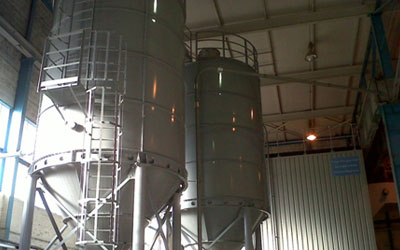Hot Gas Filtration
Hot gas filtration is a critical process in industrial environments where high-temperature gases must be cleaned of particulates before further processing, energy recovery, or emission. These systems are essential for protecting downstream equipment, meeting environmental regulations, and maintaining efficient operations.
Hot gas filters are engineered to withstand extreme temperatures, often exceeding 260°C (500°F) and in some cases reaching up to 900°C (1650°F), depending on the application and filter media. They are commonly used in industries such as cement, steel, biomass energy, incineration, petrochemical, and chemical processing.
✅ Key Benefits of Hot Gas Filtration
-
High-Temperature Resistance – Operates reliably in extreme thermal environments
-
Particulate Removal Efficiency – Captures fine dust, ash, and catalyst particles
-
Protects Downstream Equipment – Prevents fouling, erosion, and corrosion
-
Enables Energy Recovery – Cleaner gas allows for safe heat exchange and reuse
-
Supports Emissions Compliance – Helps meet environmental standards (e.g., PM, heavy metals)
-
Durable Construction – Filters made from sintered metal, ceramic, or special fiber composites
Applications
-
Waste-to-energy plants
-
Gasification systems
-
Chemical reactors
-
Metal smelting and refining
-
Catalyst recovery systems
-
Industrial boilers and furnaces
Filter Media Options
-
Ceramic Filters – Ideal for very high temperatures and corrosive gases
-
Sintered Metal Filters – Reusable and mechanically strong
-
High-Temp Fabrics (e.g., PTFE, PPS) – For baghouses in moderately hot conditions
.png)
